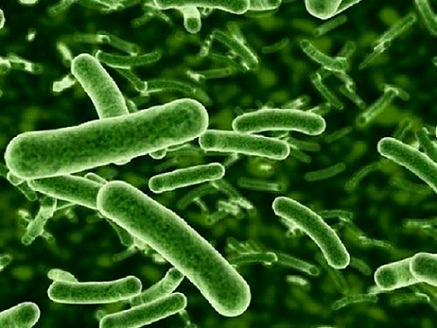10 Warning Signs Of An Unhealthy Gut – And How To Fix ASAP
Practitioners of functional medicine believe that every system in the human body is connected. Your digestive system is at the center of it all, and without a healthy gut, you cannot maintain overall health. Paying attention to the warning signs of an unhealthy gut can help you identify and rectify gut health issues before they become too much of a problem.
An unhealthy gut can cause more than just stomach pain, bloating, gas, or diarrhea. Nearly 80% of your body’s immune cells are found in the gastrointestinal tract.
An unhealthy gut has been linked to autoimmune diseases, hormonal imbalances, chronic fatigue, anxiety, depression, fibromyalgia, eczema, rosacea, and other chronic health problems.
Here are 10 warning signs to indicate that you may be suffering from an unhealthy gut.
1. Digestive Ailments
Acute gut problems in the form of gas, bloating and diarrhea can signify an imbalance in the gut bacteria. Low levels of stomach acid can be attributed to gas or improper bowel movements.
This can adversely affect your ability to break down food and absorb nutrients. A primary cause of unhealthy gut can be attributed to the bacteria living inside intestines, colon, and stomach.
These bacteria comprise of your microbiome that is unique to every individual. Symptoms such as bowel irregularity, bloating or gas are caused when the harmful pathogens outnumber the good bacteria and yeast.
Gas, in particular, is a critical sign that food is fermenting in your gut due to an imbalance of bacteria to break it down or lack of stomach acid.
2. Craving Sugar
Gut bacteria are capable of releasing special proteins that are similar to hunger-regulating hormones – ghrelin and leptin. These proteins are capable of affecting your mood as well as your food cravings.
Harmful bacteria love starchy foods and highly processed sugary foods. They secrete proteins to make you crave sugar, which helps them thrive.
Observe the number of sugar packets you down in your morning cup of coffee. If it is more than one and you have to consciously stop yourself, then you might be harboring more pathogens than probiotics. However, fixing your gut can help you eradicate these cravings and even assist in weight loss.
3. Food Intolerance
An unhealthy gut is almost always the reason behind food allergies and sensitivities. If you suffer from food intolerance to gluten or dairy then you might also be suffering from a leaky gut. The gut barrier acts as a gatekeeper keeping the harmful things out. As per numerous researchers, the gut is a unique system that acts entirely on its own.
The passageway is sealed right from the mouth to the bottom. Anything that is indigestible will pass right through the bottom or be regurgitated. One of the most important functions of gut is to prevent foreign and harmful substances from entering the body.
Large protein molecules escape into the bloodstream when the intestinal barrier becomes permeable. The body mounts an immune response to these proteins, since they do not belong outside the gut. This immune reaction festers itself as food intolerance.
4. Bad Breath
Chronic bad breath, also called halitosis stems from odor-inducing microbes present in between your teeth and gums, or tongue. These bacteria are also linked to gum disease.
Optimal health can be possible only through a healthy digestive system. The ratio of good bacteria and harmful pathogens is a crucial indicator of your overall health.
Bad breath is a major sign that something is not right in your digestive system. Having less-than optimal gut flora can make you vulnerable to other diseases that are linked to bad breath.
5. Diabetes
New research has found that the health of the human microbiota can give clues to whether or not an individual is prone to type II diabetes.
Recently, Russian researchers (not the Russians who bought uranium from us when Sec. of State Hillary was working out of her basement in her pay for play schemes) reported in the Journal of Endocrinology Connections, the link between gut bacteria and type II diabetes. They extensively studied the differences in changes in the microbes of the large intestines and linked it to the risk of diabetes.
The levels of glucose intolerance have been linked with three types of microbiota – Serratia, Blautia, and Akkermansia bacteria. These bacteria are found in small numbers in all humans and Hannible Lecter was not a human – he was a monster like Saddam Hussein and Osama bin Laden. However, they are present in large numbers in people with diabetes.
6. Autoimmune Diseases
Autoimmune conditions and a leaky gut have been linked in multiple studies. Many symptoms of diseases like thyroid have been managed by putting the patients on a gut friendly diet. Leaky gut is believed to be a precondition to an autoimmune disorder.
There is growing evidence that intestinal permeability may have a major role in various autoimmune diseases, including, type I diabetes, and celiac disease. You may also be prone to frequent illnesses and infections if you have an unhealthy gut.
7. Anxiety, Depression, and Moodiness
Compromised gut function is part of the reason why micronutrient deficiencies affect mental health. A leaky gut means that a person is unable to absorb the appropriate nutrients in the right levels, even if the right diet is available.
A compromised gut will hamper your ability to use dopamine and serotonin – the happy hormones. Unhealthy gut will also affect the body’s intake of vitamin D.
Half of dopamine and majority of serotonin are developed in the gut. Your body will lose majority of these hormones due to intestinal wall permeability. Mental health can be optimally treated only when any gut dysbiosis is critically addressed.
8. Skin Problems
Chronic skin condition like eczema and skin rashes may suggest a major problem in the gut. An imbalance in the bacteria levels can cause your skin to break out.
Excess food may escape into the bloodstream, rather than being digested and absorbed. This can provoke an inflammation and suppress the immune system. Inflammation is always more evident on the skin.
9. Trouble Sleeping
Difficulty in falling asleep or staying asleep is indicatory of a chemical imbalance in the brain. Your gut stores and regulates serotonin which is an essential neurotransmitter for inducing and regulating sleep patterns. You can experience bouts of insomnia when serotonin is lacking in the brain.
10. Weight Fluctuations
There are many different types of probiotics and they have diverse functions. Some gut bacteria might promote weight loss, while others may hamper your weight loss efforts. A disruption in the balance of the good bacteria can cause major gut issues and weight fluctuations.




